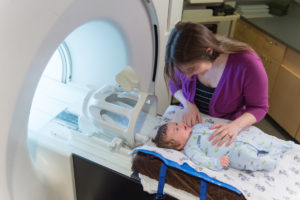Mindfulness practice in the classroom may be one way to help students improve their academic performance, nurture their emotional well-being and bolster their behavior.
At least, that’s the idea behind a new study from the University of Wisconsin–Madison’s Center for Healthy Minds (CHM), the recipient of a three-year, $1.5 million grant from the U.S. Department of Education, in partnership with the Madison Metropolitan School District, to bring the centuries-old practice into the city’s classrooms.
“We want to assess, in a rigorous way using research, something that is done all over the world,” says Lisa Flook, assistant scientist at CHM, part of the UW Waisman Center.
The large, randomized-control trial will involve 700 4th and 5th grade students and 20-30 teachers across 20 Madison elementary schools over the next three years. A specialized team from the Center will train students and teachers in Mindfulness-Based Stress Reduction (MBSR), an accessible, secular approach modified for the age groups in the study.
“Such practices, particularly early in life when neuroplasticity is at its peak, have the potential of helping children pursue a trajectory of healthy development,” says Richard Davidson, founder of CHM and a professor of psychology and psychiatry.
The Center published the results of a successful study involving Madison teachers and MBSR last year, and it conducted a pilot project involving Madison 5th graders in 2010.






